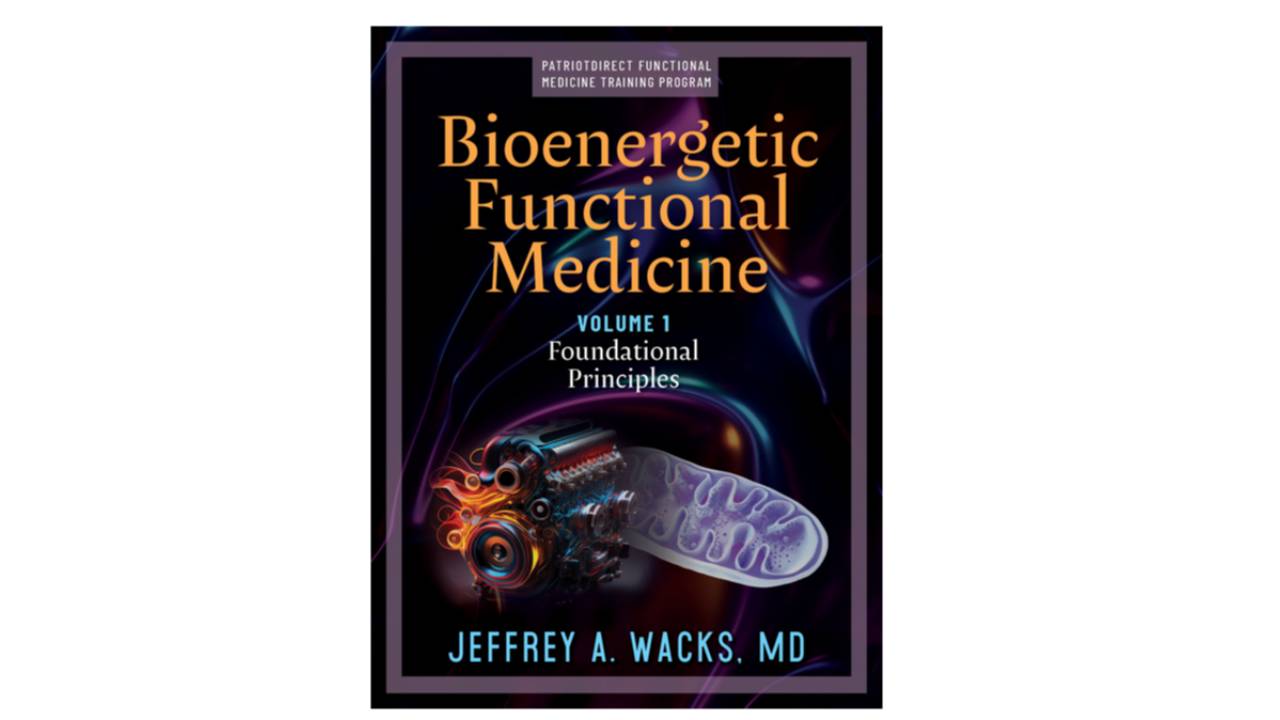The Neuroinflammation Hypothesis of Depression: Is Your Brain Inflamed?
Sep 06, 2024Author: Jeffrey Wacks, MD
Conventional medicine views depression as a disorder (i.e., Major Depressive Disorder) that originates from either psychological issues or from a imbalance in the neurotransmitters in the brain (specifically low serotonin). From a functional perspective, we would tend to see depression as a symptom of a deeper imbalance. We would agree that while psychological issues certainly do play an important role, the low serotonin hypothesis feels unsatisfying. Even if it is true (which we do not think it is), why would one have low serotonin? We tend to look at depression as a symptom of metabolic dysfunction. The brain is an energy-intensive organ. Despite representing only about 2% of the weight of the entire body, it accounts for 20% of the body's energy expenditure. If the brain is not making enough energy, it may be prone to depression. We discuss in Volume 1 how various metabolic diseases are linked to depression.
Another functional imbalance that can be particularly important in the development of depression is inflammation. This idea is discussed in the medical literature as the neuroinflammation hypothesis of depression, which states that an elevated inflammatory response in the central nervous system (e.g., neuroinflammation) creates inflammatory cytokines that are neurotoxic.1,2

Figure 1. Neuroinflammation hypothesis of depression.3
This concept is supported by studies that show that inflammation (evidenced by systemic markers such as C-Reactive Protein or by administration of inflammatory chemicals) is strongly associated with subjective depression and/or changes in functional and/or structural neuroimaging.4 For example, a small study by Musselman et al.5 showed administration of high-dose interferon alfa therapy caused major depression in 45% of patients. Additionally, a 2020 meta-analysis by Osimo et al.6 showed that patients with depression had significantly elevated levels of CRP as well as a host of other inflammatory cytokines. In further support of this hypothesis, curcumin (a potent anti-inflammatory nutritional supplement) has been shown in human clinical trials to reduce symptoms of depression.7,8
The idea that depression could be related to systemic inflammation profoundly changes the way we view this issue. Psychotherapy and anti-depressant medications can certainly have their role, but there may be other ways of addressing the underlying inflammation that would improve the patient's overall level of health. Thus, in patients who have depression, particularly if there are other inflammatory signals, it may be valuable to look at the gastrointestinal function, eliminate inflammatory foods, minimize oxidative stress, optimize hormone balance, and optimize the overall bioenergetic function of the system.
References:
- Troubat R, Barone P, Leman S, et al. Neuroinflammation and depression: A review. Eur J Neurosci. 2021;53(1):151-171. doi:10.1111/ejn.14720
- Kaufmann FN, Costa AP, Ghisleni G, et al. NLRP3 inflammasome-driven pathways in depression: Clinical and preclinical findings. Brain Behav Immun. 2017;64:367-383. doi:10.1016/j.bbi.2017.03.002
- Subermaniam K, Teoh SL, Yow YY, Tang YQ, Lim LW, Wong KH. Marine algae as emerging therapeutic alternatives for depression: A review. Iran J Basic Med Sci. 2021;24(8):997-1013. doi:10.22038/ijbms.2021.54800.12291
- Han KM, Ham BJ. How Inflammation Affects the Brain in Depression: A Review of Functional and Structural MRI Studies. J Clin Neurol. 2021;17(4):503-515. doi:10.3988/jcn.2021.17.4.503
- Musselman DL, Lawson DH, Gumnick JF, et al. Paroxetine for the prevention of depression induced by high-dose interferon alfa. N Engl J Med. 2001;344(13):961-966. doi:10.1056/NEJM200103293441303
- Osimo EF, Pillinger T, Rodriguez IM, Khandaker GM, Pariante CM, Howes OD. Inflammatory markers in depression: A meta-analysis of mean differences and variability in 5,166 patients and 5,083 controls. Brain Behav Immun. 2020;87:901-909. doi:10.1016/j.bbi.2020.02.010
-
Lopresti AL. Potential Role of Curcumin for the Treatment of Major Depressive Disorder. CNS Drugs. 2022;36(2):123-141. doi:10.1007/s40263-022-00901-9
-
Ramaholimihaso T, Bouazzaoui F, Kaladjian A. Curcumin in Depression: Potential Mechanisms of Action and Current Evidence-A Narrative Review. Front Psychiatry. 2020;11:572533. Published 2020 Nov 27. doi:10.3389/fpsyt.2020.572533


